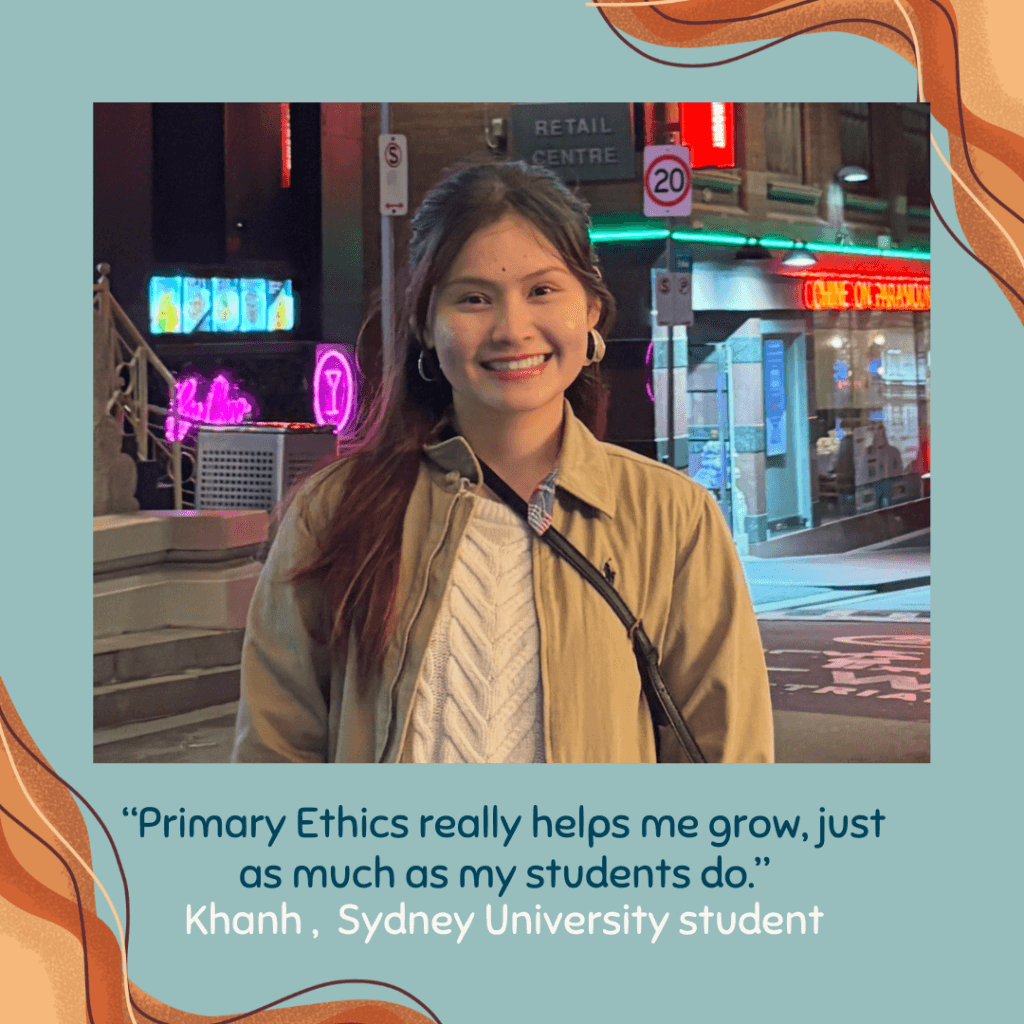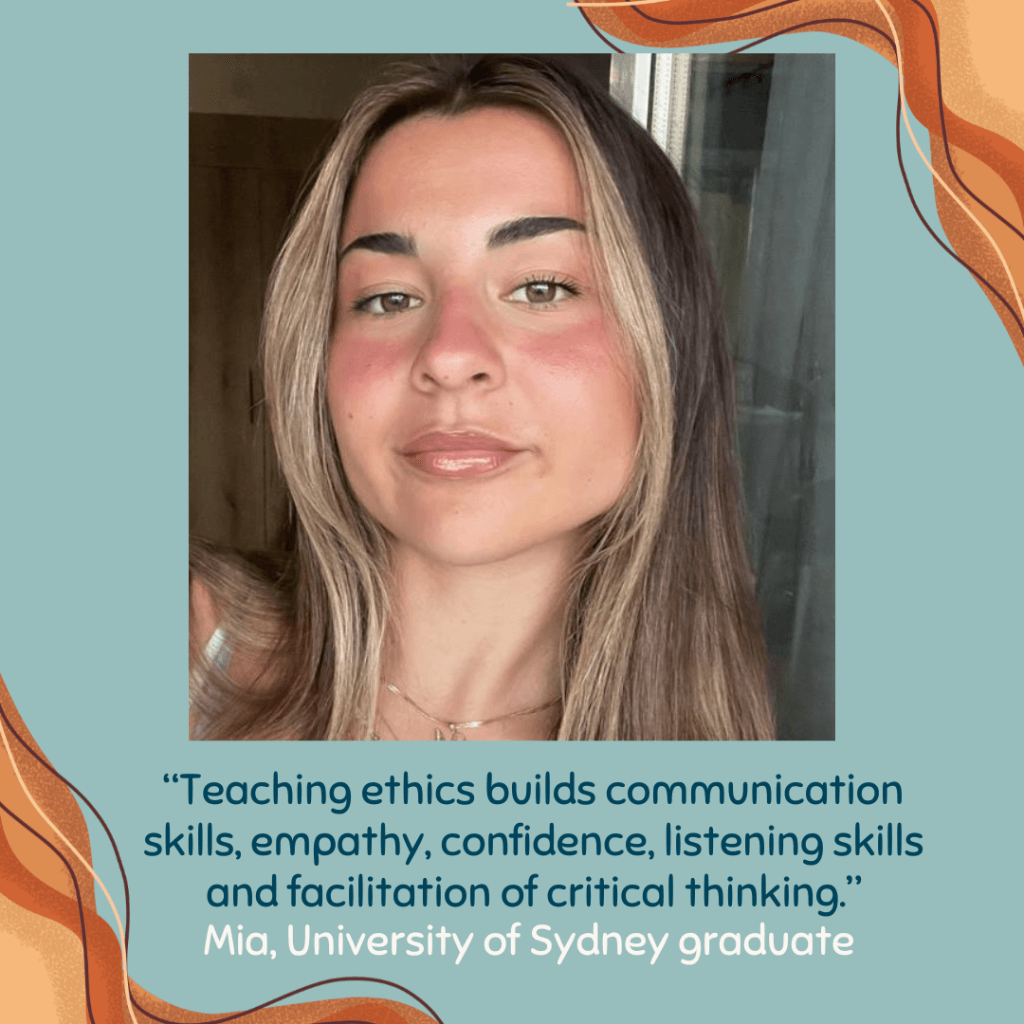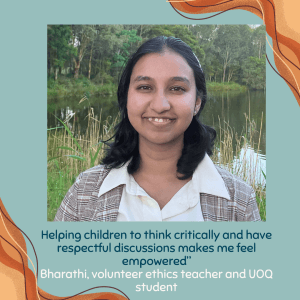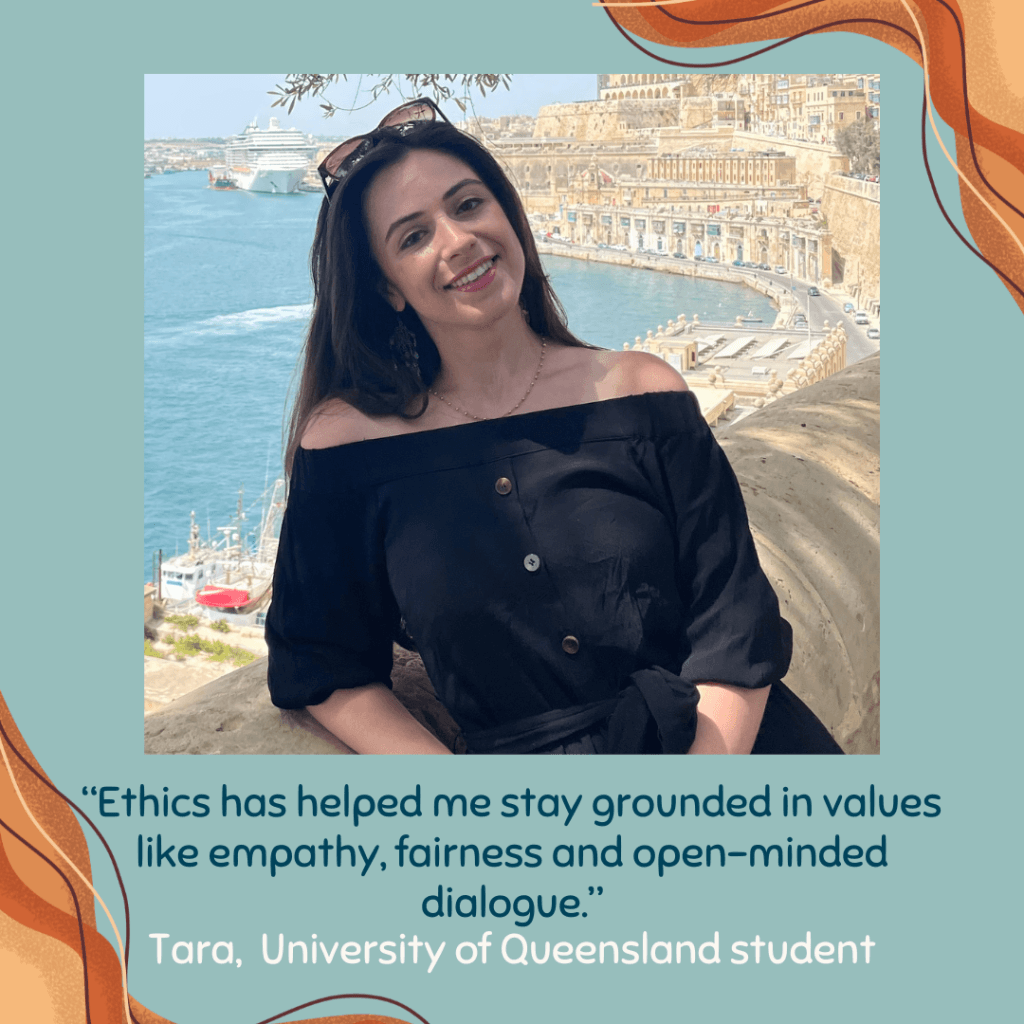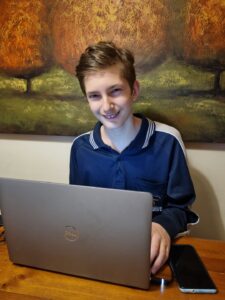Inquiring Minds Spring 2025
Welcome to Inquiring Minds for spring 2025, where we bring you stories and reflections from our ethics classrooms and our volunteers, as well as recent Primary Ethics highlights.
In this issue we collected stories from our wonderful volunteers, such as:
- we hear from two professionals who put their skills learnt as ethics volunteers into practice at work
- you can watch the video of our panel discussion on critical thinking and empathy in the age of AI
- and we share a letter from a supporter whose father asked for him to be removed from Religion lessons in 1965.
- Plus many more stories!
To receive the next Inquiring Minds direct to your inbox, make sure to subscribe to our newsletters.
